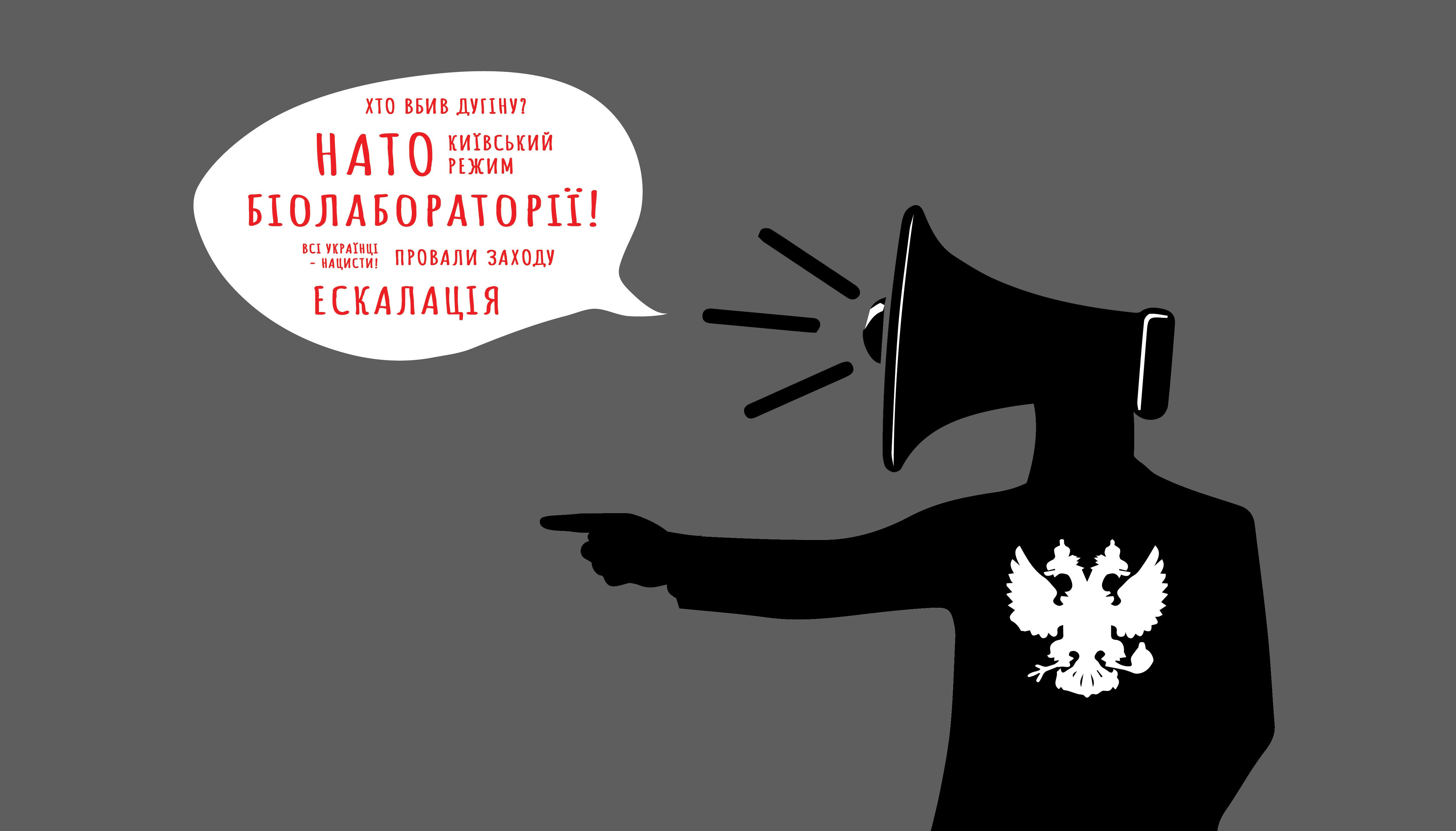Українською читайте тут.
Despite engaging in a full-scale war against Ukraine for a year, Russia continues to be a part of international organizations, including the Organization for Security and Cooperation in Europe (OSCE). Russian diplomats not only attend meetings and sessions under the Organization's umbrella but also disseminate disinformation. For instance, they reiterate that their attack was launched in self-defense or claim that all Ukrainians are Nazis.
Despite a year of full-scale war against Ukraine, Russia is still present in international organizations, including the Organization for Security and Cooperation in Europe (OSCE). Russian diplomats not only participate in meetings and sessions within the framework of OSCE but also spread disinformation. For example, they repeat that they had to attack to defend themselves. Or they claim that all Ukrainians are Nazis.
First, let's understand what the OSCE Permanent Council is and how it works
The Permanent Council plays a crucial role in facilitating interaction between the OSCE member states, an international organization governed directly by participating countries, without a separate governing body. Each year, the organization is chaired by a delegation from one of the participating countries. This year, the honor fell to North Macedonia, following Poland's chairmanship in the previous year. Meetings are held every Thursday (with exceptions made for holidays or special cases), where representatives from participating countries discuss topical issues related to the situation in the OSCE region.
Since the start of the full-scale Russian invasion of Ukraine, the first part of each meeting has been dedicated to the section titled "The Russian war of aggression against Ukraine". During this section, the presiding delegation, the Ukrainian delegation, and the Western delegations deliver speeches in support of Ukraine. However, Russia chooses not to participate in this part of the meeting, citing its opposition to the "non-consensual name" of the section ("aggressive war" instead of "special military operation").
In the other part of the meeting, titled "Review of Current Issues," each delegation has the opportunity to speak on any topic related to the crises in the region. Here, the Russian delegation delivers a weekly speech on the war against Ukraine, which is often filled with examples of Russian disinformation. This disinformation is apparent in the title of their speech, which changes depending on the current situation, such as "Regarding the ongoing crimes of the Kyiv regime and the dangerous policy of the Western alliance countries to escalate tensions".
So what tactics does Russia use to promote disinformation in the OSCE
1. Victim blaming, mirroring, and devaluation
Russia's weekly speeches often accuse Ukraine and the West of provoking aggression. This campaign began last year, with members of the Russian delegation claiming a "threat from NATO" even before the full-scale invasion. Russian diplomats often claim that Ukraine is not a full-fledged state, allegedly ruled by "Western curators" who encourage it to fight with its “sister” Russia. They claim that Russia is simply fighting for the interests of its people and that Ukraine is not their enemy.
The "Kyiv regime" and NATO are portrayed as the main sources of evil. In one speech, the Russian delegation stated that “the search is on for pretexts to maintain the level of escalation and deeper military intervention of NATO in the situation in Ukraine, to 'feel' the limits of Russia's restraint in relation to direct threats to [Russia's] security created by Western states on the territory of Ukraine”. Russian diplomats also emphasized that "a number of NATO states provide tanks to those who publicly declare the goal of ‘destroying Russia as a state’... Falsely and hypocritically, against this background, they claim that they are not involved in the conflict..."
Propagandists take quotes from foreign politicians out of context, with recent examples including statements made by former French President Francois Hollande and former German Chancellor Angela Merkel about the Minsk agreements.
Russian diplomats often claim that NATO, by helping Ukraine with weapons, is allegedly escalating the war to a new level. According to the Russian delegation, the goal of such actions is to "destroy Russia."
In other sections of the Permanent Council meetings, the Russian delegation devotes large parts of their reports to the alleged failures and mistakes of Western countries, trying to show that the West is actually worse than Russia and pushing Ukraine to the brink.
Russia is using these tactics to justify its actions and shift responsibility to the victim of aggression or Western countries.
2. Stereotyping tactics
At the meetings, Russian diplomats frequently repeat the propaganda narrative that "all Ukrainians are Nazis." This is a tactic used by the aggressor's delegation to justify its military actions. They claim that Russia is fighting against a Nazi junta that could potentially spread throughout Europe.
To spread this narrative, Russian representatives take various situations and statements out of context, create fake photos and videos, and repeat the messages and fabrications of Russian propaganda media. For example, in one of their speeches, Russian diplomats stated: "We acknowledge that Western countries continue to encourage manifestations of neo-Nazism in Ukraine, camouflaging obvious crimes and unprecedented discrimination under the guise of an alleged struggle to strengthen sovereignty. The acts of direct discrimination against the Russian language, historically inherent in Ukraine, which have not received any assessment, [as well as] measures to oust it from education, culture, and everyday life are of particular concern. In contrast, there are plans to make English compulsory or Deputy Prime Minister Iryna Vereshchuk's fantasies about adding Polish to the high school graduation exam program. Millions of Russian-speaking Ukrainians are having their identities forcibly reshaped with the support of the West and the complete silence of the OSCE."
A classic example of the use of stereotyping tactics in Russian statements is the claim that the slogan "Glory to Ukraine" is Nazi. Russian diplomats invent a false historical context for it, claiming its alleged Nazi origin. By using this "history," the Russian delegation wants to show that the "Kyiv regime" is criminal and that the Western world is helping to spread Nazism in Europe. In the same context, the Russians mention the restrictions on Russian-language products in Ukraine and the Baltic states, calling it "Russophobia" in Europe.
Similarly, Russians mentioned the ban on the activities of the Ukrainian Orthodox Church of the Moscow Patriarchate in Ukraine. They say that this is a true manifestation of Nazism and humiliation on the basis of religious affiliation. This falls under the general Russian strategy of belittling the Ukrainian people, which underpins the imperial ambitions in Russian state policy. It is also an attempt to justify aggression against Ukraine.
3. Intimidation tactics
Russian diplomats not only make excuses but also try to intimidate diplomats from other countries. They claim that Russia is not at war yet and is just practicing and that the “rhythm of the war drums may change soon”, forcing the West to change its approach to the situation.
These threats are connected to messages claiming the West wants to destroy Russia and its statehood. Russian diplomats often emphasize that the planned operation of the "collective West," which they see as Russia's enemy, has already failed and that the Russian president is conducting a victorious "special military operation." As a result, the statements of the Russian delegation contain threats of "responsibility" for people who engage in "Russophobic activities" and call for a reaction from the OSCE leadership. This is aimed at people who recognize that Russia has unleashed a criminal war and is killing Ukrainians every day and call for a response.
Russia regularly repeats the same messages during OSCE meetings. In recent months, the Russian delegation has been repeating the same fake stories and narratives in the same format from week to week. Propagandists, for example, wanted to convince people that the real tragedies in Ukraine were happening to Russians.
One such story that has been repeated many times is the murder of Darya Dugina. Russian diplomats argue that she was killed by Ukrainian nationalists who were intimidated by her honesty and that this situation should be considered a hate crime. They have also repeatedly mentioned their version of the explosions on the Crimean Bridge, calling the situation a "terrorist attack." Additionally, they bring up the story of Valeriy Zaluzhny's alleged "Nazi" bracelet.
Russia resorts to this tactic to raise doubts, even among those who were previously skeptical of its statements.
5. Equivocation
In the context of international organizations, equivocation takes on a distinct form compared to what is commonly seen in the media. For example, instead of calling it a war, it may be referred to as a "special military operation," and a loss may be described as a "gesture of goodwill." Instead, in the case of international organizations, it is a matter of distorting legal acts and internationally recognized rules.
During discussions regarding the war with Ukraine, the Russian delegation often cites NATO's "invasion" of Yugoslavia as a precedent that gave them the right to launch their own “special military operation”. However, it is important to remember that in 1999, NATO was intervening to prevent war crimes and genocide against civilians, for which Yugoslavian President Slobodan Milosevic was later tried.
At meetings of international organizations, such as the OSCE, debates often arise around the concept of a rules-based international legal order. The Russian delegation argues that this topic is irrelevant, as everyone can interpret it as they see fit. They contend that the only appropriate format for international interaction is an order based on international law. However, a rules-based international legal order is characterized by principles such as human equality, freedoms, the rule of law, human rights, an open market, security, and financial cooperation to promote the regime of liberal democracy in the world. In contrast, an order based on international law is not guided by these principles. Nonetheless, Russia's claims quickly fall apart, as they are notorious for systematically violating international law and interpreting it to suit their own interests.



